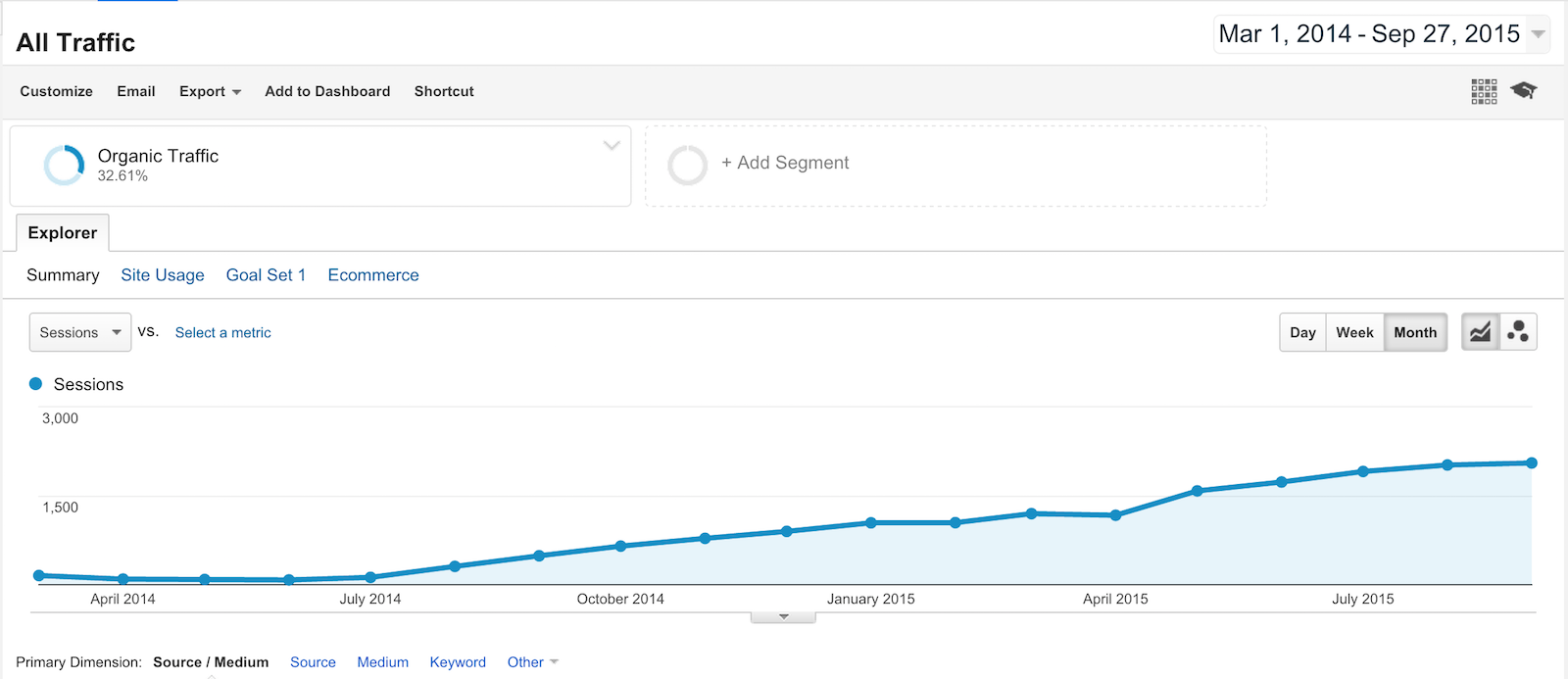10 Common Website Mistakes That Can Hurt Google Rankings
Google algorithms change at seemingly lightning speed, and it can be tough to figure out how to stay ahead of the changes. Yet chasing the latest techniques is not always the best choice. Instead, take a moment to back up and understand the intent behind the algorithms. Google’s goal is to provide web searchers with the best, highest quality, most relevant answers to their queries. Keeping this in mind, it is easy to see that sticking with the basics can help Google rankings no matter what the next algorithm brings. Yet developing a website that follows the best practices for SEO (search engine optimization) can be challenging. Here are 10 common website mistakes that could be hurting your Google rankings.

1. Duplicate Content
To Google, duplicate content looks an awful lot like spam. It is a waste of resources and can be confusing to users. Get rid of any duplicate pages that you have, and focus on making each page as valuable, content rich, and tightly targeted to your selected keyword phrase as possible.
2. Keyword Stuffing
At one time, picking a few keywords and forcing them unnaturally into a wall of content was a valid strategy. Today, however, Google is more sophisticated. Keyword stuffing is hard for humans to read, provides little useful content, and is interpreted by Google as spam. Aim for authoritative, well-written content with your chosen keywords or phrases lightly sprinkled in a natural way.
3. Inconsistent NAP
Your business Name, Address, and Phone number are key pieces of information that let customers know how to find you. They also signal to Google that yours is a real, legitimate business. If your NAP varies, not only within your own website but across the internet, Google begins to suspect that yours might be a sham business.
4. Poor Social Media Integration
User engagement is a key to achieving and maintaining high Google rankings. People tend to engage more fully with websites that are fully integrated with social media. Make it easy to share content across multiple social media platforms, and you are likely to see a jump in your Google rankings.
5. Low Quality Inbound Links
Buying and selling links used to be a valid marketing strategy, but today, the quality of your incoming links matters. Links from trusted authorities give you a boost, while links from spammy sites could earn a penalty. If you cannot get rid of spammy links, you can Disavow them with Google.
6. Dead Outbound Links
Google wants to know that your site is well maintained. Links to 404 error pages, both within your own site and on other sites, show Google that you don’t care about the user experience. It is absolutely critical to maintain the site and get rid of dead links as soon as possible.
7. Spammy or Thin Content
To rank highly on Google, your content needs to be well-written and authoritative. If you are not a subject matter expert, try to find someone who is. You need at least 700 words of high quality content per page, and it must be tightly relevant to your chosen keyword or keyword phrase.
8. Poorly Optimized Landing Pages
Many people try to make their homepage into a generic landing page. But this is impossible, and can hurt your Google rankings. Each keyword or phrase needs its own landing page, and each landing page needs to follow all the best practices for SEO.
9. Burying Content Below the Fold
“The fold” is an old newspaper term for the spot where a newspaper is folded in half. When talking about a web page, it refers to the part of the page that is visible without scrolling down. Many people make the mistake of burying their most important content below the fold, which can hurt Google rankings by making it more likely for visitors to bounce off the page rather than scrolling down to read more.
10. Overused H1 Tags
H1 tags play a very specific role in telling Google what a web page is about. Using too many H1 tags can make your page look spammy. Be very careful and judicious in your use of these tags.
With so many things to think about, building your own website can be challenging. A professional design and development team understands these and many more aspects of good SEO, and can optimize your site to perform well in Google rankings.
Do you need an expert in website design and development? With a team of specialists covering a wide range of skill sets and backgrounds, The BHW Group is prepared to bring your vision to life. Contact us today to discuss your ideas.




